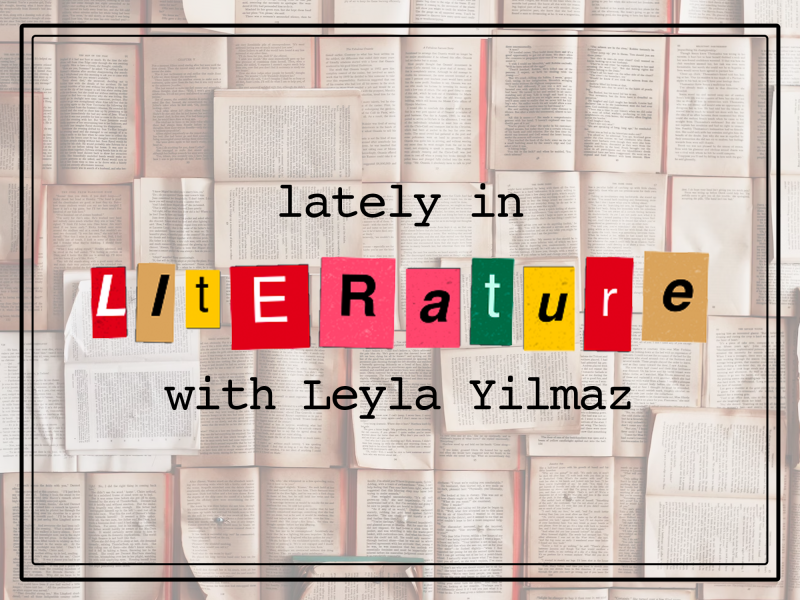I have reviewed many books with unlikable protagonists in this column. Some with insanely bizarre plots, disturbing storylines, horror-esque magical realisms. But Dorothy Tse’s “Owlish” is on another level: fantastical yet utterly absurd. However, if you’re willing to peel off the confusing layers, the book’s loaded with messages and literary allusions.
Tse’s debut novel is set to be published in the U.S. in June 2023 by Graywolf Press. It takes place in Nevers — an alternate version of Hong Kong — following the life of Q, a literature professor. Q’s life as a middle-class married professor is, to simply put it, lackluster. He has been in the same position for years, has a dull marriage and seems entirely dispassionate about life.
Everything about Q seems monotonous and ordinary, except for the fact that he has a collection of dolls … as a grown man. Currently in a mid-life crisis, he also possesses a desire to get into a love affair. The life of a middle-aged man and his toys may seem the last thing you want to read about, but Tse soon delivers so much more than what you might expect at a first glance.
Q’s desire for an affair comes true when he stumbles upon an underground auction and ends up purchasing a life-sized ballerina doll, Aliss. Reminiscent of Alice’s fall through the rabbit hole and into Wonderland, the storyline then becomes just as psychedelic. Reading about the doll coming to life and getting fake-married to Q was awkward and eerie. However, the novel still managed to make a social commentary out of the most bizarre plot.
Amongst the surrealism and unorthodox relationship arcs, Tse’s novel is ultimately a discussion of British colonialism, oppression and censorship. The reader is introduced to the history of Nevers early on in the book. It once belonged to the Valerian Empire and was then given to the Vanguard Republic of Ksana. The class conflicts within the society is immediately reflected by the different languages spoken by different social strata. The conflicts are exacerbated by the oppressive republic, which spurs protests at Q’s university.
Tse weaves in critiques of government censorship through details about Q’s life. In describing a traveling theater troupe that Q has been in search of, Tse writes, “The dancing was a little stiff but no one had ever seen a striptease before and they were mesmerized by the gyrating puppet bodies and the tiny doll clothes being peeled off one item at a time.”
She blames the government’s heavy censorship for the public’s weird infatuations and Q’s ennui in life. There’s almost a kafka-esque tone to her writing, as she depicts his eerie surroundings to convey his lost state of mind under an oppressive regime.
Q’s misery reminded me of the troubled hero, Don Quixote, who builds his own fictionalized life fighting windmills (which he imagines to be giants) to escape the reality of his economic and religious crisis. The similarities between Q and Don Quixote are not accidental. Tse explicitly places an artwork of Don Quixote in the church where professor Q frequently meets Aliss.
“Cocooned inside his church, the professor forgot all about the dangers of the city.” writes Tse, reminding the readers that Q’s story is one of escapism.
Throughout the novel, it’s hard to tell whether Q has gone mad or Aliss has actually come alive, but Q’s disturbing and troubled state of mind is hard to ignore. He seeks physical satisfaction from Aliss as well as a religious epiphany. All he has known outside of the doll and the church are pretend relationships, repressive regimes and a corrupt government. Perhaps he has purposefully trapped himself in a state of dreaming to escape reality?
But of course, not the entire population of Nevers is living in this dream-state. Q’s students are participating in a strike and Q cannot ignore it for much longer.
“It’s a lovely sunny day and here you are with your noses stuck in a book of dead letters … Go out there! Get in touch with the flesh and blood of the real world!” he says to some of the students who came to class instead of participating in the strike. His words are a warning to the students yet also for himself: that he cannot go on dreaming forever.
If you’re the type of reader who likes stories that need to be interpreted in multiple ways, who is up for a little riddle and who cannot get enough of literary allusions, “Owlish” is the book for you. Despite being a confusing read that blurs fiction and reality and makes you never want to see a ballerina doll ever again, the book has an allure in reframing real life politics through a surrealist lens.
Editor’s Note: This article is a review and includes subjective thoughts, opinions and critiques.
The article has been updated with the information that Graywolf Press will be “Owlish’s” U.S. publisher, whereas Fitzcarraldo Editions will publish the novel in the U.K. and Europe this February.
